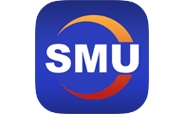Product

August 17, 2020
Bell, Leibowitz to Talk Trade at Steel Summit
Written by Sandy Williams
Philip Bell, president of the Steel Manufacturers Association, and Washington trade attorney Lewis Leibowitz will square off next week at the SMU Steel Summit 2020 to offer their viewpoints on steel trade.
The Steel Manufacturers Association recently added its name to a letter penned to the House rules committee in support of an amendment that would ensure adequate funding for trade law enforcement and compliance efforts within the Department of Commerce’s International Trade Administration. SMA and Bell have been strong supporters of trade measures that protect the U.S. steel industry from unfairly traded imports and encourage the use of American made steel. In March, SMA was among five steel industry groups that opposed a proposal by the Senate Finance Committee to ease tariff restrictions under Section 302 and Section 232 during the COVID-19 pandemic.
“Any efforts to delay or reduce the collection of duties on unfairly-traded steel imports or imports that threaten to impair U.S. national and economic security will ultimately hurt U.S. workers and businesses during this unprecedented moment,“ wrote the group in a letter to Acting Customs and Border Protection Commissioner Mark Morgan.
Lewis Leibowitz is a frequent contributor to Steel Market Update and has suggested that Commerce is preferential to the steel industry to the detriment of traders and downstream steel users. In recent comments, Leibowitz wrote that proposed changes to antidumping and countervailing duty regulations “will affect importers and their customers more seriously than before, mostly by looking back at imports and potentially charging them with antidumping and countervailing duties they may have been unaware of.”
Leibowitz has also been critical of Section 232 tariffs, saying they have not led to a revival of the steel and aluminum industries nor changed the behavior of foreign exporters or investors. “Tariffs and quotas on steel and aluminum must serve a broader purpose than protecting individual companies, because other Americans are hurt by them. There is simply no basis that foreign interests actually pay the tariffs, because U.S. importers pay them.”
Whichever view you support, Bell and Leibowitz promise to provide valuable insight on how trade regulation impacts the industry and steel users in North America. Join us for SMU’s Virtual Steel Summit 2020 by registering here.







